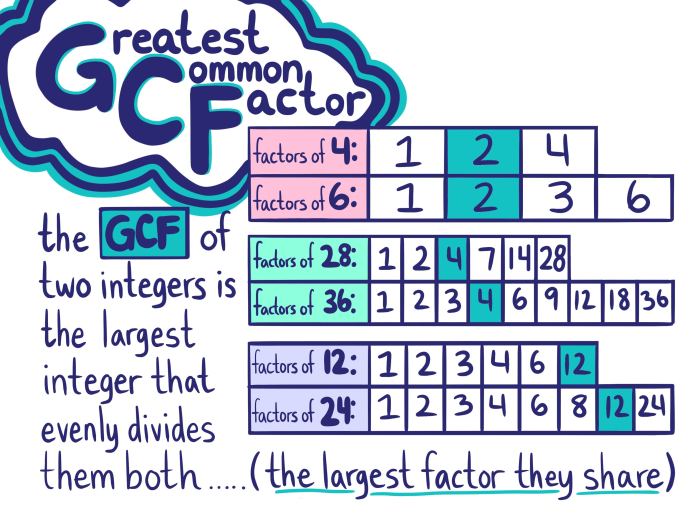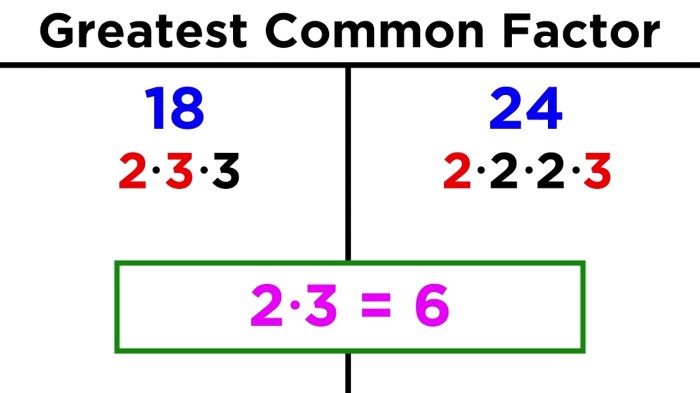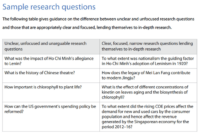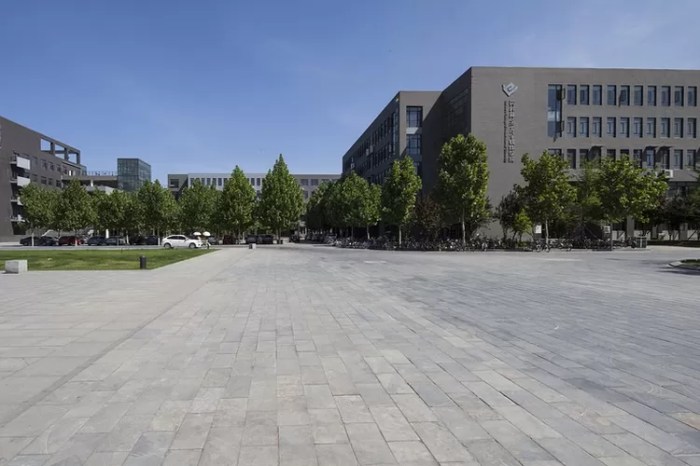KPK dalam Bahasa Inggris, atau Corruption Eradication Commission, adalah lembaga penting dalam sistem hukum Indonesia yang bertugas memberantas korupsi. KPK dibentuk pada tahun 2002 dengan tujuan untuk meningkatkan transparansi dan akuntabilitas pemerintahan, serta membangun kepercayaan masyarakat terhadap sistem hukum.
Lembaga ini telah memainkan peran penting dalam memberantas korupsi di Indonesia dengan menangani berbagai kasus besar yang melibatkan pejabat tinggi negara. KPK juga telah membangun sistem dan mekanisme kerja yang efektif untuk menyelidiki dan memproses kasus korupsi. Namun, dalam menjalankan tugasnya, KPK juga menghadapi berbagai tantangan, seperti resistensi dari pihak-pihak yang terlibat dalam korupsi dan keterbatasan sumber daya.
The Definition of KPK in English
The KPK, or “Kejaksaan Agung,” is the Supreme Court of Indonesia. It is the highest court in the country and is responsible for upholding the law and ensuring justice for all citizens.
What is the meaning of KPK in English?, Kpk dalam bahasa inggris
The term “KPK” is an abbreviation for “Kejaksaan Agung,” which literally translates to “Attorney General’s Office.” In English, this is commonly referred to as the “Supreme Court” or “Supreme Judicial Court.” It is the highest court in Indonesia, responsible for upholding the law and ensuring justice for all citizens.
Examples of how to use KPK in English
- The KPK is the final court of appeal in Indonesia.
- The KPK has the power to overturn decisions made by lower courts.
- The KPK is responsible for interpreting the law and ensuring that it is applied fairly.
Synonyms for KPK in English
- Supreme Court
- Supreme Judicial Court
- High Court
- Court of Appeal
- Court of Last Resort
The Role of KPK in the Indonesian Legal System
The Corruption Eradication Commission (KPK) plays a crucial role in strengthening the Indonesian legal system by combating corruption, which has plagued the country for decades. The KPK’s efforts have significantly impacted various aspects of Indonesian law, leading to increased accountability and transparency in government institutions and the private sector.
KPK’s Role in the Indonesian Legal System
The KPK’s role in the Indonesian legal system is multifaceted and can be categorized into several key areas, including:
- Prevention: The KPK actively promotes awareness and education programs to prevent corruption. It works with various stakeholders, including government agencies, businesses, and civil society organizations, to implement anti-corruption measures and strengthen ethical values.
- Investigation and Prosecution: The KPK investigates and prosecutes corruption cases involving government officials, private sector actors, and individuals. It has the authority to arrest suspects, conduct searches, and seize assets related to corruption offenses.
- Asset Recovery: The KPK is responsible for recovering assets stolen through corruption. It works with international partners to track down and repatriate stolen funds, ensuring that corrupt officials are held accountable for their actions.
- Law Enforcement Cooperation: The KPK collaborates with other law enforcement agencies, both domestically and internationally, to share information and coordinate investigations. This collaborative approach enhances the effectiveness of corruption eradication efforts.
Case Studies and Impact
The KPK has been involved in numerous high-profile cases that have had a significant impact on the Indonesian legal system. For instance, the case of the former Governor of Jakarta, who was convicted of corruption in 2017, demonstrated the KPK’s commitment to holding even the most powerful individuals accountable. This case sent a strong message that no one is above the law, deterring future corruption attempts and fostering public trust in the legal system.
Another notable case involved the investigation and prosecution of a major oil and gas company for bribery and corruption. The KPK’s actions in this case highlighted the agency’s determination to combat corruption not only in government but also in the private sector. This case further reinforced the importance of transparency and accountability in business practices, leading to increased scrutiny of corporate activities.
KPK’s Role in Different Legal Aspects
| Legal Aspect | KPK’s Role |
|---|---|
| Criminal Law | Investigating and prosecuting corruption offenses, including bribery, embezzlement, and money laundering. |
| Civil Law | Recovering assets stolen through corruption through civil lawsuits. |
| Administrative Law | Monitoring and evaluating government agencies’ performance in preventing and combating corruption. |
| International Law | Collaborating with international organizations and law enforcement agencies to combat transnational corruption. |
The Organizational Structure of the KPK
The Corruption Eradication Commission (KPK) is an independent institution in Indonesia tasked with fighting corruption. It has a unique structure designed to ensure its effectiveness and independence. This structure consists of various divisions, each with specific roles and responsibilities.
Divisions within the KPK
The KPK’s organizational structure is composed of several key divisions, each with its own specific functions and responsibilities. This structure ensures a comprehensive approach to combating corruption.
- The Directorate of Prevention: This division focuses on preventing corruption through education, awareness campaigns, and promoting good governance practices. It works with various stakeholders, including government agencies, private sector organizations, and civil society groups, to develop and implement anti-corruption programs.
- The Directorate of Investigation: This division is responsible for investigating allegations of corruption. It conducts investigations, gathers evidence, and prepares cases for prosecution. This division works closely with other law enforcement agencies to ensure effective investigation and prosecution of corruption cases.
- The Directorate of Prosecution: This division handles the prosecution of corruption cases in court. It prepares legal arguments, presents evidence, and seeks convictions against individuals and organizations involved in corrupt practices. The prosecution division works closely with the investigation division to ensure a smooth transition of cases from investigation to prosecution.
- The Directorate of Execution: This division oversees the execution of court decisions in corruption cases. This includes enforcing asset recovery, confiscating ill-gotten gains, and ensuring the implementation of court-ordered sanctions. The execution division works closely with other agencies, such as the Ministry of Finance and the National Land Agency, to ensure effective implementation of court decisions.
- The Directorate of Human Resources and Organization: This division is responsible for managing the KPK’s human resources, including recruitment, training, and development. It also oversees the organization’s internal structure and operations. This division ensures that the KPK has the necessary human capital and organizational capacity to effectively carry out its mandate.
- The Directorate of Information and Data: This division manages the KPK’s information and data systems, including its database of corruption cases, investigations, and prosecutions. It also develops and implements information technology solutions to support the KPK’s operations. This division ensures the availability of reliable data and information for decision-making and evidence-based interventions.
- The Directorate of Legal and Monitoring: This division provides legal advice to the KPK and monitors the implementation of its policies and procedures. It also handles legal disputes and litigation involving the KPK. This division ensures that the KPK operates within the legal framework and complies with relevant regulations.
- The Directorate of International Cooperation: This division fosters international cooperation in the fight against corruption. It works with foreign agencies and organizations to share information, best practices, and resources. This division strengthens the KPK’s capacity to address transnational corruption and enhance global cooperation in combating corruption.
The Organizational Chart of the KPK
The KPK’s organizational chart reflects the division of responsibilities and the reporting structure within the institution. The chart illustrates the hierarchical structure, starting with the Chairman at the top, followed by the Deputy Chairmen, and then the Directors of each division. This structure ensures clear lines of authority and accountability.
This information is based on the general structure of the KPK, but the specific roles and responsibilities of each division may vary depending on the current structure and policies of the organization. It’s important to refer to the official KPK website for the most up-to-date information.
Mekanisme Kerja KPK

The Corruption Eradication Commission (KPK) is Indonesia’s independent anti-corruption agency, responsible for preventing, eradicating, and prosecuting corruption. The KPK’s work is guided by a comprehensive framework, ensuring a thorough and transparent approach to tackling corruption.
Mekanisme Kerja KPK
The KPK’s operational framework is based on a three-pronged strategy: prevention, eradication, and prosecution. Each component is interconnected, working in synergy to effectively combat corruption.
- Prevention: The KPK promotes transparency and accountability in government and private sectors. This includes public education programs, training for public officials, and developing regulations to minimize opportunities for corruption.
- Eradication: The KPK actively investigates and prosecutes corruption cases. This involves gathering evidence, conducting interrogations, and coordinating with other law enforcement agencies to bring perpetrators to justice.
- Prosecution: The KPK has the authority to bring corruption cases to court. This involves preparing strong legal arguments, presenting evidence, and seeking convictions against corrupt individuals.
Proses Penanganan Kasus
The KPK’s case handling process is designed to ensure fairness, transparency, and accountability. The process begins with receiving reports or information about suspected corruption and involves a series of steps, including:
- Preliminary Investigation: The KPK gathers initial information and assesses the validity of the allegations. This may involve interviews, document reviews, and site visits.
- Investigation: If sufficient evidence is found, the KPK conducts a full investigation, gathering evidence, and identifying suspects.
- Case Submission to Prosecutor: Once the investigation is complete, the KPK submits the case file to the Prosecutor’s Office for review and potential prosecution.
- Trial: If the Prosecutor’s Office approves the case, the KPK brings the case to court for trial.
- Sentencing: If found guilty, the court will impose a sentence, which may include imprisonment, fines, or asset forfeiture.
Langkah-langkah Penyelidikan
The KPK’s investigative process is comprehensive and meticulous. It involves a series of steps, including:
- Information Gathering: The KPK gathers information from various sources, including reports, complaints, whistleblowers, and media reports.
- Evidence Collection: The KPK collects evidence through various means, such as document analysis, interviews, surveillance, and searches.
- Witness Examination: The KPK conducts interviews with witnesses, including victims, suspects, and individuals with relevant information.
- Expert Analysis: The KPK may consult with experts in various fields, such as accounting, finance, and law, to analyze evidence and determine the extent of the corruption.
- Coordination with Other Agencies: The KPK collaborates with other law enforcement agencies, such as the police and the Attorney General’s Office, to ensure a coordinated approach to investigations.
Contoh Kasus
The KPK has a track record of successfully investigating and prosecuting high-profile corruption cases. One notable example is the case of the former Governor of Jakarta, who was found guilty of receiving bribes in exchange for approving a building permit. The KPK investigated the case, gathered evidence, and brought the governor to trial, resulting in a conviction and a lengthy prison sentence. This case demonstrated the KPK’s commitment to holding even the most powerful individuals accountable for their actions.
Challenges Faced by the Corruption Eradication Commission (KPK): Kpk Dalam Bahasa Inggris

The Corruption Eradication Commission (KPK) is an independent body tasked with combating corruption in Indonesia. Since its establishment in 2003, the KPK has made significant strides in tackling corruption, but it also faces numerous challenges in fulfilling its mandate.
Lack of Public Support
Public support plays a crucial role in the effectiveness of any anti-corruption agency. Unfortunately, the KPK has faced a decline in public trust in recent years, primarily due to allegations of selective prosecution and the politicization of its investigations. This decline in public support has hampered the KPK’s ability to effectively carry out its duties.
- One of the key factors contributing to the decline in public trust is the perception of selective prosecution, where certain individuals or groups are targeted while others with similar offenses are spared. This perception has fueled accusations of bias and political motivations, further eroding public confidence in the KPK’s impartiality.
- Another factor is the politicization of the KPK’s investigations. Political actors have often attempted to influence or interfere with the KPK’s investigations, leading to delays, setbacks, and a sense of distrust among the public. This interference has undermined the KPK’s independence and its ability to act impartially.
Limited Resources
The KPK’s effectiveness is also hampered by limited resources, both financial and human. While the KPK has received substantial funding over the years, it has faced challenges in allocating these resources efficiently, particularly in areas such as technology, training, and capacity building.
- The KPK’s limited resources have hindered its ability to conduct complex investigations, especially those involving sophisticated financial crimes. The agency has also struggled to keep up with the increasing volume of corruption cases, leading to backlogs and delays in investigations.
- The lack of sufficient human resources has also hampered the KPK’s effectiveness. The agency has faced challenges in attracting and retaining qualified personnel, particularly in specialized areas such as forensic accounting and legal expertise. This shortage of skilled personnel has limited the KPK’s ability to effectively investigate and prosecute corruption cases.
Legal Obstacles
The KPK has also encountered numerous legal obstacles in its fight against corruption. These obstacles include limitations on its investigative powers, the use of legal technicalities to delay or obstruct investigations, and the lack of adequate legal protection for KPK investigators.
- The KPK’s investigative powers have been subject to limitations and restrictions, particularly in relation to wiretapping and the seizure of assets. These limitations have hampered the KPK’s ability to gather evidence and effectively prosecute corruption cases.
- The use of legal technicalities has also posed a significant challenge for the KPK. Suspects and their lawyers have often employed legal maneuvers to delay or obstruct investigations, including filing frivolous lawsuits and using legal loopholes to avoid accountability.
Lack of Political Will
While the KPK has enjoyed some degree of political support in the past, it has also faced periods of resistance and opposition from certain political actors. This lack of political will has hindered the KPK’s ability to effectively implement its mandate and achieve its goals.
- The KPK has often been criticized for its aggressive approach to combating corruption, which has led to tensions with certain political figures who have felt threatened by the agency’s investigations. This resistance has manifested in attempts to weaken the KPK’s powers, reduce its budget, or obstruct its investigations.
- The lack of consistent political support has also hindered the KPK’s ability to implement comprehensive anti-corruption reforms. While the KPK has made progress in enacting legislation and policies to combat corruption, it has faced challenges in securing the necessary political backing to ensure their effective implementation.
Corruption Within the KPK
While the KPK is tasked with combating corruption, it has also faced allegations of corruption within its own ranks. These allegations have tarnished the agency’s image and undermined public trust in its integrity.
- The KPK has faced several high-profile corruption scandals involving its own investigators and officials. These scandals have raised serious concerns about the agency’s internal controls and its ability to effectively combat corruption within its own organization.
- The allegations of corruption within the KPK have also led to calls for greater transparency and accountability within the agency. These calls have prompted the KPK to implement reforms aimed at strengthening its internal oversight mechanisms and enhancing its ethical standards.
Penutupan Akhir

KPK terus berjuang untuk meningkatkan kinerja dan efektivitasnya dalam memberantas korupsi. Dengan dukungan masyarakat dan kerja sama dengan lembaga lain, KPK diharapkan dapat semakin kuat dan efektif dalam menjalankan tugasnya. Keberadaan KPK sebagai lembaga independen menjadi harapan bagi masyarakat Indonesia untuk mewujudkan pemerintahan yang bersih dan berwibawa.






